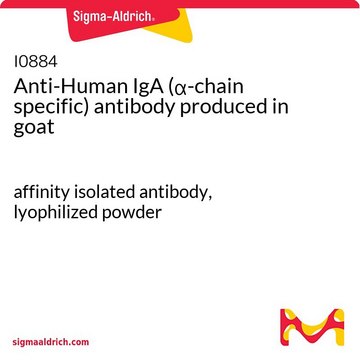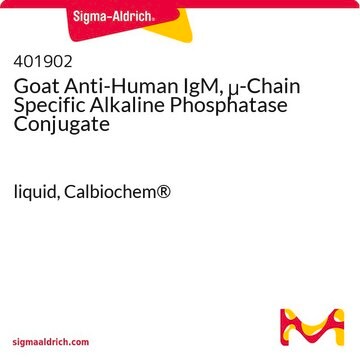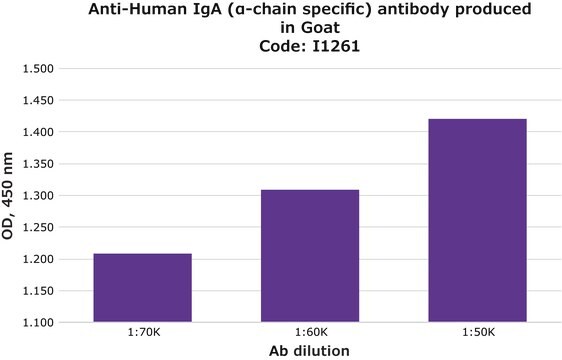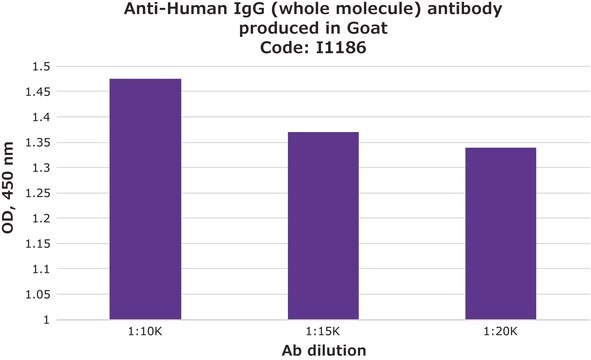401132
Goat Anti-Human IgA, α-Chain Specific Alkaline Phosphatase Conjugate
liquid, Calbiochem®
Sign Into View Organizational & Contract Pricing
All Photos(1)
About This Item
UNSPSC Code:
12352203
NACRES:
NA.74
Recommended Products
biological source
goat
Quality Level
antibody form
affinity isolated antibody
antibody product type
secondary antibodies
clone
polyclonal
form
liquid
contains
≤0.1% sodium azide as preservative
manufacturer/tradename
Calbiochem®
storage condition
do not freeze
isotype
IgG
shipped in
wet ice
storage temp.
2-8°C
General description
Immunoaffinity purified goat polyclonal antibody, conjugated to alkaline phosphatase. Recognizes human IgA, α-chain.
This Goat Anti-Human IgA, α-Chain Specific Alk-Phos Conjugate is validated for use in Enzyme Immunoassay, Immunoelectrophoresis for the detection of Human IgA, α-Chain Specific.
Packaging
Please refer to vial label for lot-specific concentration.
Warning
Toxicity: Standard Handling (A)
Physical form
In 50 mM Tris, 1 mM MgCl₂, 0.1 mM ZnCl₂, 1% BSA, pH 7.6.
Other Notes
p-Nitrophenyl phosphate, 1.0 mg/ml in 10% diethanolamine, pH 9.8, 1 mM MgCl2 at 25°C, was used as substrate for testing immunoenzyme reactivity. Monospecific for human immunoglobulin A, α-chain as determined by immunoelectrophoresis against normal human serum. Variables associated with assay conditions will dictate the proper working dilution.
Legal Information
CALBIOCHEM is a registered trademark of Merck KGaA, Darmstadt, Germany
Not finding the right product?
Try our Product Selector Tool.
Storage Class Code
12 - Non Combustible Liquids
WGK
WGK 2
Flash Point(F)
Not applicable
Flash Point(C)
Not applicable
Certificates of Analysis (COA)
Search for Certificates of Analysis (COA) by entering the products Lot/Batch Number. Lot and Batch Numbers can be found on a product’s label following the words ‘Lot’ or ‘Batch’.
Already Own This Product?
Find documentation for the products that you have recently purchased in the Document Library.
Malick M Gibani et al.
Nature medicine, 25(7), 1082-1088 (2019-07-05)
Salmonella Typhi is a human host-restricted pathogen that is responsible for typhoid fever in approximately 10.9 million people annually1. The typhoid toxin is postulated to have a central role in disease pathogenesis, the establishment of chronic infection and human host
Our team of scientists has experience in all areas of research including Life Science, Material Science, Chemical Synthesis, Chromatography, Analytical and many others.
Contact Technical Service








